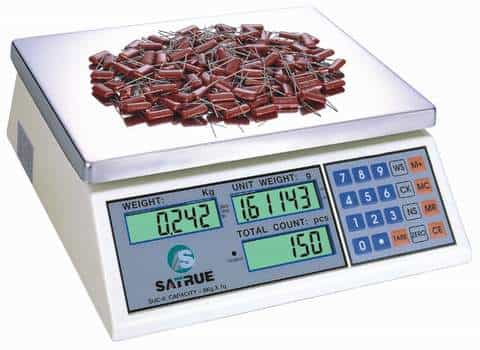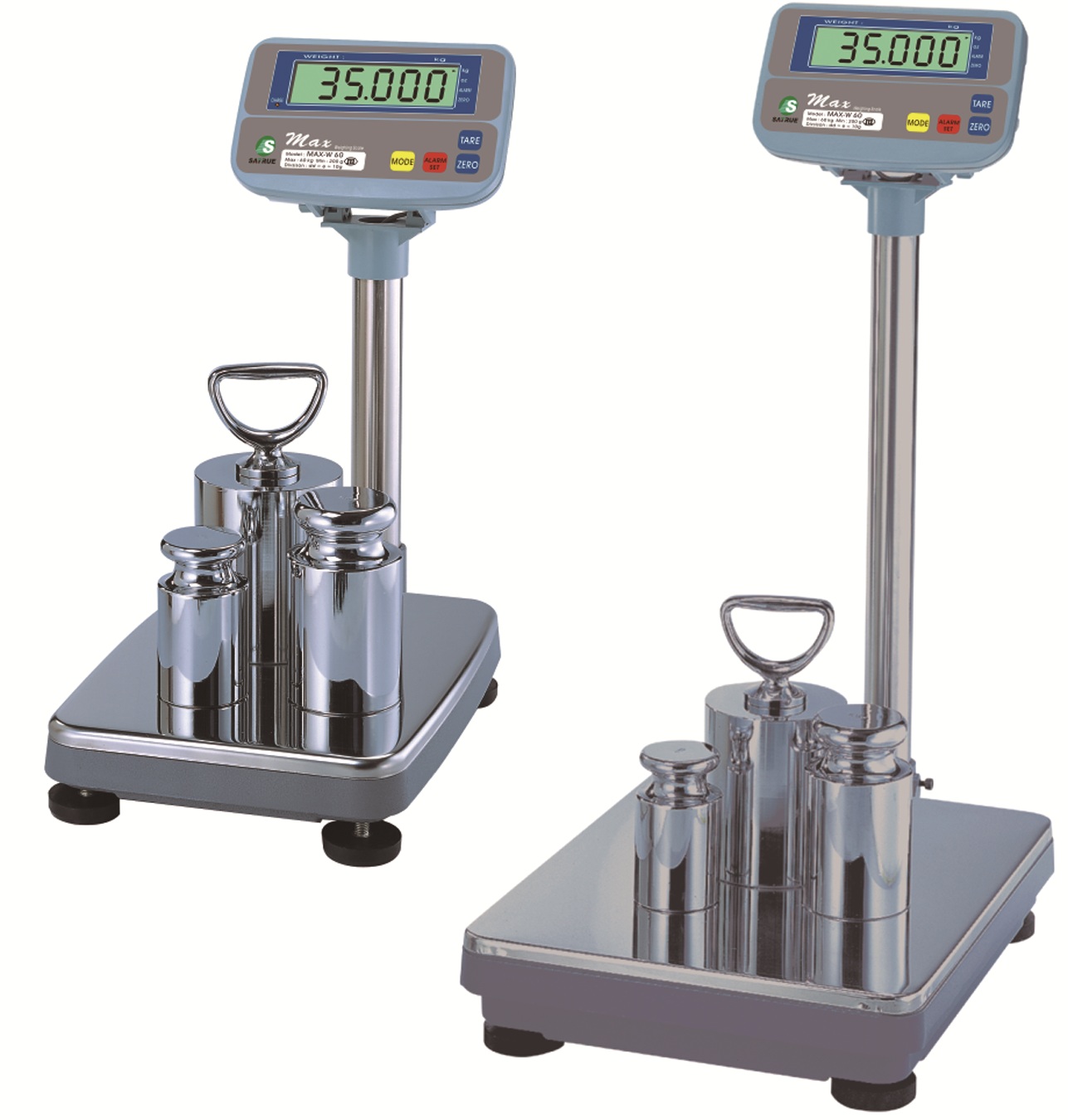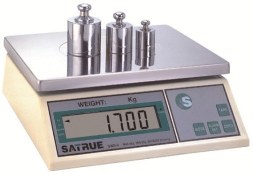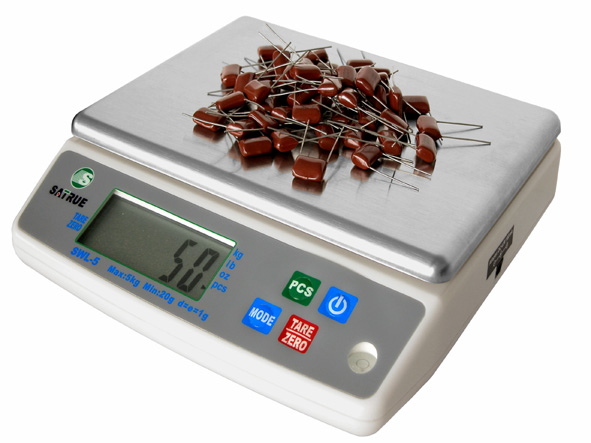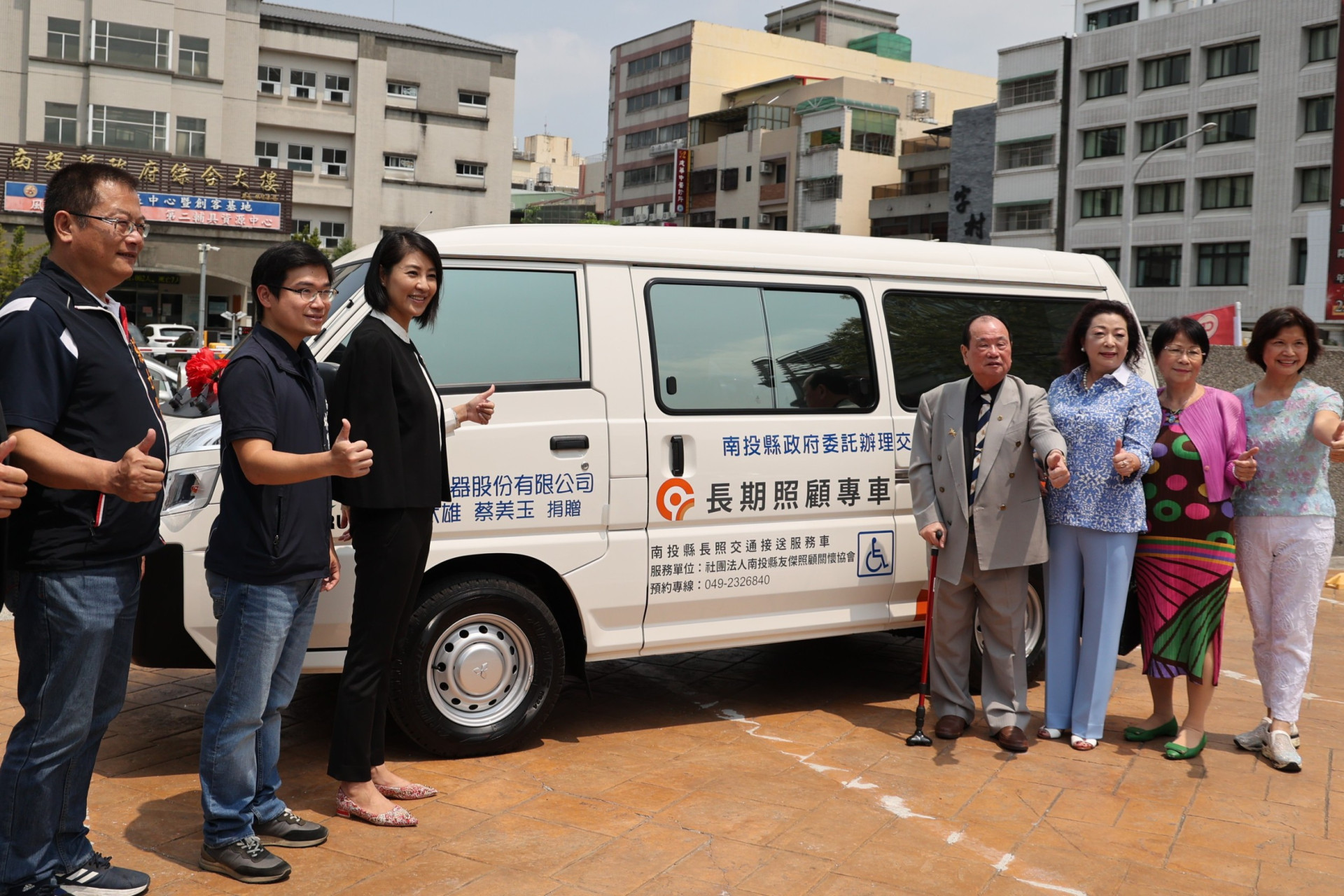Products
SUC Electronic counting scale
Etronic counting scale made in Taiwan, having specifications of capacity 3 kg to 60 kg, division 0.2 grams to 5 grams. For applications in receiving, warehousing, production or shipping, inventories or preparation of mixtures.
MAX-WH Platform weighing scale
Capacity x Division:
30 kg x 2 g
60 kg x 5 g
150 kg x 10 g
300 kg x 20 g
Applications: Hotels, restaurants, factories, workshops, bulk weighing, logistics, and other manufacturing processes.
30 kg x 2 g
60 kg x 5 g
150 kg x 10 g
300 kg x 20 g
Applications: Hotels, restaurants, factories, workshops, bulk weighing, logistics, and other manufacturing processes.
SWB-H Weighing scale
Digital weighing scale made in Taiwan, having specifications of capacity 3 kg to 60 kg, division 0.2 grams to 5 grams. It is an electronic scale to be used in factories, workshops, delis, cafes, bistros, restaurants, pizza/sub shops, schools, universities and cafeterias...etc.
SCW-E Weighing scale
Capacity x Division:
15 kg x 1 g
30 kg x 2 g
50 kg x 5 g
Applications: Factories, workshops, delis, cafes, bistros, restaurants, pizza/sub shops, schools, universities, cafeterias.
15 kg x 1 g
30 kg x 2 g
50 kg x 5 g
Applications: Factories, workshops, delis, cafes, bistros, restaurants, pizza/sub shops, schools, universities, cafeterias.
SWL-H Weighing scale
This electronic scale having specifications of capacity 3 kg to 10 kg, division 0.5 grams to 2 grams. It is an electronic scale to be used in factories, workshops, delis, cafes, bistros, restaurants, pizza/sub shops, schools, universities, cafeterias.
SWL-E Portion Control Scale
This electronic portion scale having specifications of capacity 6 kg and 12 kg, division 0.5 grams to 1 gram. Designed to measure and portion out ingredients for dispensing equal portions each time. It is an electronic scale to be used in delis, cafes, bistros, restaurants, pizza/sub shops, and cafeterias...etc.
SATRUE
Founded in 1983, Shang Chuen Weighting Machine Co., Ltd. started its business by selling electronic scales.
In 1985, the company started to develop and manufacture its own scales because of the remarkable sales volume. Success followed, as good quality convinced the Shimadzu Corp. of Japan to begin placing subcontract orders, resulted in influential benefit on improving manufacturing techniques and setting up a computerized temperature and humidity testing chamber to further upgrade ability.






